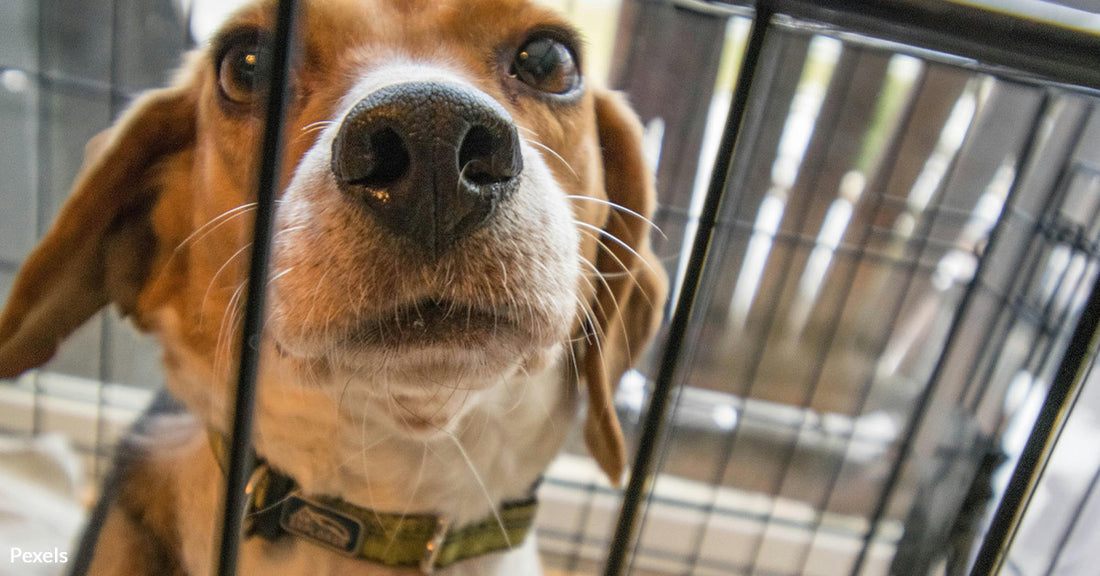Innocent Animals Suffer Horrific Deaths in Nicotine Testing
Matthew Russell
The world of nicotine product testing on animals is fraught with ethical concerns and scientific inaccuracies. Animal testing for nicotine products has been criticized for being both inhumane and scientifically flawed.
The dark side of nicotine testing on animals is rife with cruelty and misleading data, and innocent creatures are paying the price.

Unethical Practices in Nicotine Testing
Nicotine product testing on animals involves subjecting them to harsh conditions. Mice, rats, and sometimes dogs, such as beagles, are forced to inhale nicotine vapors or have nicotine-containing substances applied to their skin.
As TobaccoFreeLife reports, these procedures often lead to severe suffering and death. For example, rats have been coated with cigarette tar and forced to inhale smoke, leading to skin cancer and other horrifying effects, such as their skin peeling off.
Animals used in these tests are kept in restrictive conditions, unable to escape the continuous exposure to harmful substances. After enduring weeks or months of testing, these animals are typically euthanized for tissue analysis, reports Animal Defenders International.
This raises significant ethical issues, as the suffering inflicted on these animals often outweighs the benefits of the research.

Scientific Inaccuracies and Misleading Results
The tobacco industry has a long history of using animal testing to create doubt about the dangers of smoking. Studies involving animals inhaling tobacco smoke have often failed to show a clear link between smoking and lung cancer.
As NCBI reports, this is primarily because the physiology of animals like rodents is significantly different from that of humans. For instance, rodents are obligatory nose-breathers, and their lung structure is not a perfect model for human lungs. As a result, these studies have often produced misleading results that do not accurately reflect the risks of smoking for humans. Moreover, the use of "light" or "low tar" cigarettes was promoted using faulty animal studies.
Smoking machines used in these tests inhaled a consistent amount of smoke, unlike human smokers who adjust their inhalation to maintain nicotine intake, reports TobaccoFreeLife.
This led to the false perception that these cigarettes were safer, causing many smokers to switch to these products without any real health benefits.

Impact on Public Health and Animal Welfare
The consequences of misleading nicotine product testing extend beyond animal suffering. Consumers have been misled about the safety of nicotine products, resulting in continued health risks, as Euronews reports.
Animal welfare advocates argue that the continued use of animals in nicotine testing is not only unethical but also unnecessary. Advanced non-animal testing methods, such as lung-on-a-chip models and 3D human tissue cultures, provide more accurate and humane alternatives, Animal Defenders International reports.
These methods can replicate human responses to nicotine exposure more effectively than animal models, which often fail to predict human outcomes accurately.

Calls for Change and Legislative Efforts
Animal rights organizations and some legislators are pushing for a ban on nicotine testing on animals. The European Union's Directive 2010/63/EU encourages the use of alternative methods and aims to reduce the number of animals used in scientific research.
Despite these efforts, some countries continue to allow nicotine testing on animals under certain conditions, highlighting the need for stronger regulations and enforcement. Animal Defenders International (ADI) has called for an end to misleading e-cigarette tests on animals, emphasizing the availability of human-relevant research methods. These advanced methods can provide more reliable data without causing unnecessary suffering to animals.

A Path Forward
The continued use of animals in nicotine product testing is both ethically and scientifically problematic. The suffering inflicted on animals and the misleading data produced by these tests underscore the need for change.
Advanced, non-animal testing methods offer a viable and humane alternative, capable of providing more accurate insights into the effects of nicotine on human health.
It is crucial for legislators, scientists, and the public to advocate for the adoption of these methods and the cessation of animal testing for nicotine products. By doing so, we can protect animal welfare and ensure that public health information is based on reliable, human-relevant data. Click below and help take action for animals!

